Product Detail
Product NameTyrosine Hydroxylase Rabbit mAb
Clone No.SD080-02
Host SpeciesRecombinant Rabbit
Clonality Monoclonal
PurificationProA affinity purified
ApplicationsWB, ICC, IHC, FC
Species ReactivityHu, Ms, Rt
Immunogen Descrecombinant protein
ConjugateUnconjugated
Other NamesDystonia 14 antibody DYT14 antibody DYT5b antibody EC 1.14.16.2 antibody OTTHUMP00000011225 antibody OTTHUMP00000011226 antibody ple antibody Protein Pale antibody TH antibody The antibody TY3H_HUMAN antibody TYH antibody Tyrosine 3 hydroxylase antibody Tyrosine 3 monooxygenase antibody Tyrosine 3-hydroxylase antibody Tyrosine 3-monooxygenase antibody Tyrosine hydroxylase antibody
Accession NoSwiss-Prot#:P07101
Uniprot
P07101
Gene ID
7054;
Calculated MW59 kDa
Formulation1*TBS (pH7.4), 1%BSA, 40%Glycerol. Preservative: 0.05% Sodium Azide.
StorageStore at -20˚C
Application Details
WB: 1:50,000-1:100,000
IHC: 1:50-1:200
ICC: 1:100-1:500
FC: 1:50-1:100
Western blot analysis of Tyrosine Hydroxylase on different lysates using anti-Tyrosine Hydroxylase antibody at 1/50,000 dilution. Positive control: Lane 1: PC-12 Lane 2: Mouse brain
Immunohistochemical analysis of paraffin-embedded rat brain tissue using anti-Tyrosine Hydroxylase antibody. Counter stained with hematoxylin.
Immunohistochemical analysis of paraffin-embedded mouse brain tissue using anti-Tyrosine Hydroxylase antibody. Counter stained with hematoxylin.
ICC staining Tyrosine Hydroxylase in N2A cells (green). The nuclear counter stain is DAPI (blue). Cells were fixed in paraformaldehyde, permeabilised with 0.25% Triton X100/PBS.
ICC staining Tyrosine Hydroxylase in SH-SY-5Y cells (green). The nuclear counter stain is DAPI (blue). Cells were fixed in paraformaldehyde, permeabilised with 0.25% Triton X100/PBS.
Flow cytometric analysis of SH-SY-5Y cells with Tyrosine Hydroxylase antibody at 1/50 dilution (red) compared with an unlabelled control (cells without incubation with primary antibody; black). Alexa Fluor 488-conjugated goat anti rabbit IgG was use as the secondary antibody
The enzyme tyrosine hydroxylase (TH), also designated tyrosine 3-monooxygenase (TY3H), catalyzes the conversion of tyrosine to L-dopa, which is the rate limiting step in the biosynthesis of catecholamines such as dopamine, adrenalin and noradrenalin. TH is thought to play a role in the pathogenesis of Parkinsons disease, which is associated with reduced dopamine levels. Two transcription factor binding sites in the proximal region of the TH gene, the TPA-responsive element (TRE) and the c-AMP responsive element (CRE), have been implicated in the complex regulation of the TH gene. TH is also known to be upregulated by the glia maturation factor (GMF), a Cdc 10/SWI6 motif-containing protein called V-1, and a variety of additional compounds.
If you have published an article using product 49178, please notify us so that we can cite your literature.


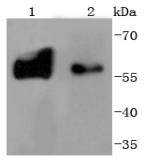
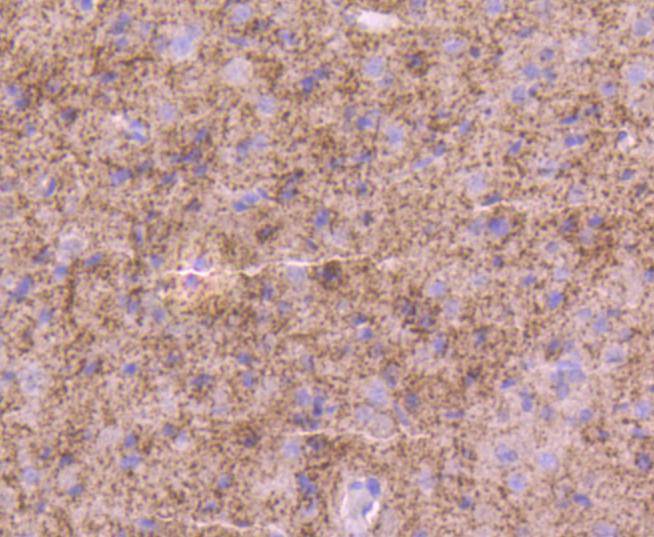
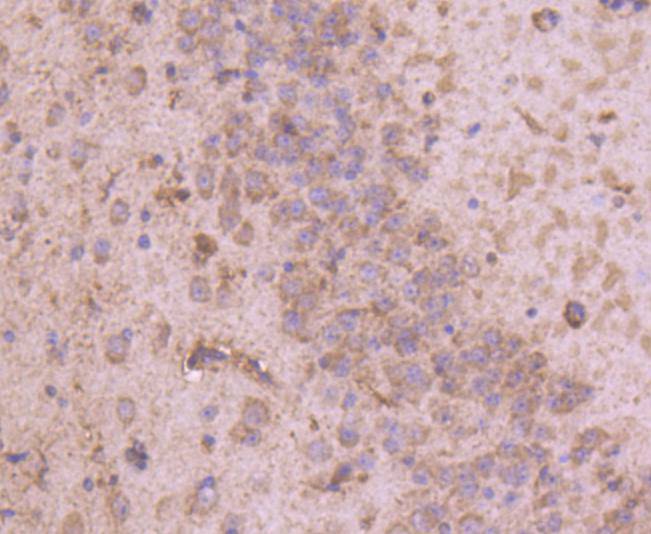
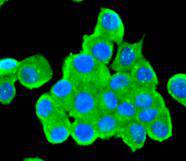
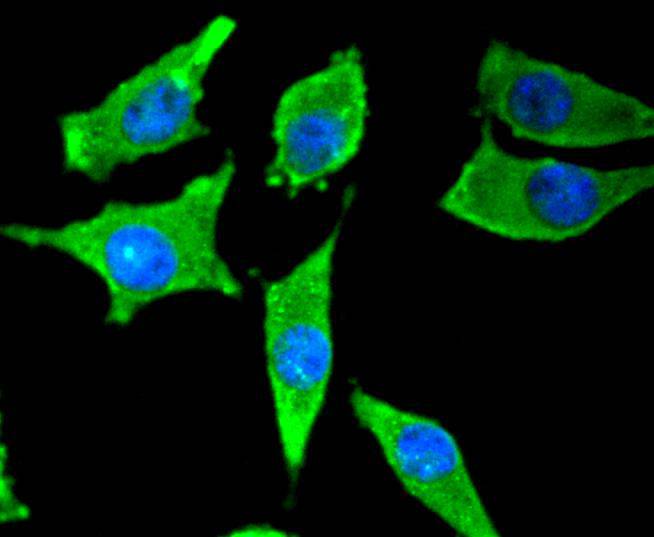
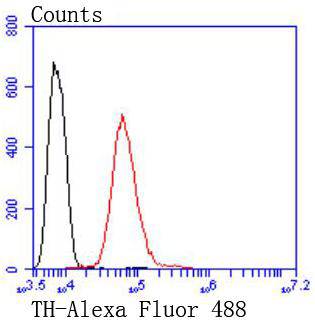
 Yes
Yes



